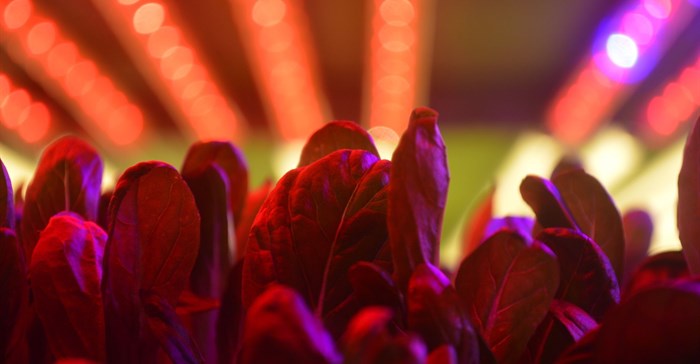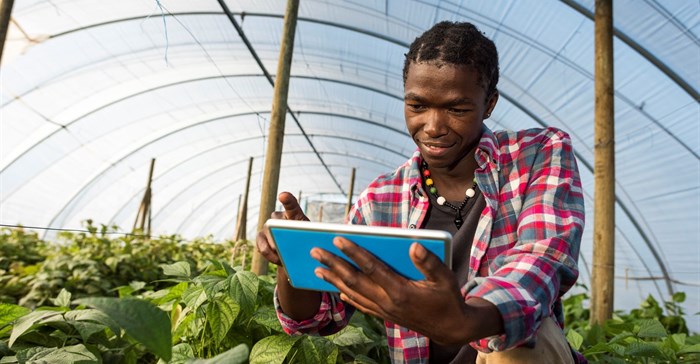#AfricaMonth: Sustainable food production requires digitisation of entire agri value chain
This problem is one that SAP Africa has committed substantial time to understanding, especially in light of how data could be harnessed to optimise food production in urban areas.
“With a growing population and diminishing natural resources, we need to find innovative ways to feed a projected nine billion people by 2050. Digitisation in the agriculture and food industry will change the way farmers operate, driving a proliferation of connected farmer’s networks and the use of technologies such as IoT,” said Adriana Marais, head of innovation at SAP Africa.

By growing plants in vertical stacks in an indoor environment, factors contributing to growth such as temperature, water and levels of carbon dioxide and nutrients can be monitored, controlled and optimised using sensors and by analysing the data generated. In hot and dry regions, sunlight is a sufficient light source while water usage can be reduced by as much as 95%.
Establishing smart farming greenhouses in city locations will significantly reduce the time frame from seed to retail outlet. Obvious candidates for production include highly perishable crops such as leafy greens, an unrivalled source of vitamins, minerals, and nutrients, as well as indigenous medicinal plants.
“We’re strong believers in harnessing data to generate insights that improve people’s lives. Leveraging technology could help achieve food security and support agribusinesses by increasing farming efficiencies, creating transparent and sustainable food supply chains, and managing price volatility,” said Marais. “Technology can enable agribusinesses to be more productive, extract greater value from the supply chain, and serve consumers better.”
Smarter ways to farm
IoT allows agribusinesses to use data-generating sensor-embedded devices that, when linked to a digital core, enables opportunities for analysis and real-time insights. These insights can be used across the value chain to drive business decision-making and create opportunities for new business models. Agribusiness companies are finally understanding the full potential of the interconnection between physical and digital assets and the Internet of Things.
“We are seeing increased interest in and uptake of new technologies such as digital sensors that measure humidity, temperature, soil and more, all the while generating huge volumes of data. Linking sensors to GPS-enabled devices could also provide agribusinesses with a real-time view of a farm, which they can leverage to improve operations quickly and efficiently,” said Marais.

SAP’s solution for digital farming helps farmers leverage services and individualised agricultural solutions provided by agribusiness companies. Agribusinesses can use algorithms on field data shared by the farmer to calculate prescriptions that optimise efficiency for each individual farmer.
Digital farming provides several key benefits, including:
• More precise application of input products, leading to lower costs and higher revenues through better yields and quality.
• Holistic digital services, solution offerings, and agronomy advice from cooperatives through the digital agribusiness platform, helping farmers achieve optimal prices for input products.
• Fertiliser or crop protection, with producers providing prescriptions and more precise agricultural solutions to farmers.
• Predictive maintenance enabled by machine and equipment manufacturers collecting huge volumes of IoT data directly on the field, creating opportunities to offer value-adding services and applications.
• Complementary digital services from food processors and producers to farmers, creating open lines of communication about available supply and helping to ensure optimum quality.
• Digital offerings from agricultural labs, contractors, and financial services companies supporting completely new business processes and outcome-based scenarios.
“With a mounting challenge of providing adequate food supply for a rapidly growing population, digital agribusiness is set to become increasingly pervasive. The digitisation of the agricultural value chain increases the potential for us to develop a sustainable food supply for the world’s citizens. With emerging technologies such as drones, connected machines, and field sensors becoming more affordable, we can drive efficiency in the agricultural sector by prioritising innovation,” said Marais.
“Agribusinesses are under pressure to increase production of high-quality food in a low-margin business, while also reducing their ecological footprint. With consumer demand for ethically sourced food also growing, agribusinesses will need to show the exact origin of food items, as well as how they were processed. Digitisation gives agribusinesses the ability to track and trace ingredients and processes all the way from field to fork, creating further urgency around establishing a connected, efficient supply chain.”
Related
Social media's impact: Driving business strategies from marketing to ROI 18 Mar 2025 Telkom, partners introduce smart agritech, transforming SA wine 14 Mar 2025 Persistent growth: How IoT solutions could revolutionise agritech 19 Nov 2024 #YouthMonth: Lunga Momoza of Basket Ecommerce, empowering youth in SA's agritech 27 Jun 2024























